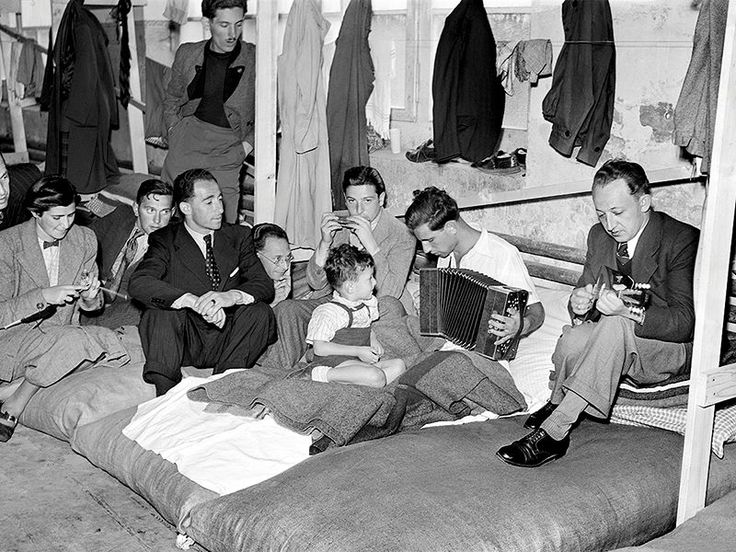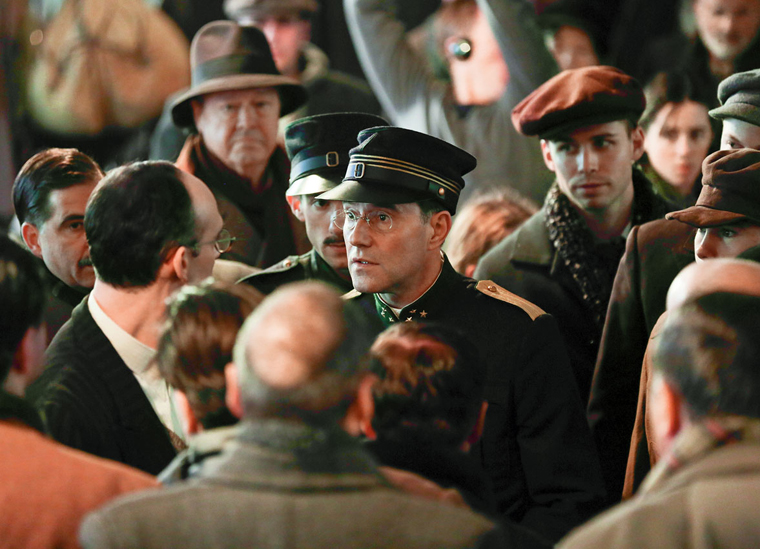The police commander who saved hundreds of Jews
As Jewish refugees attempted to flee from Austria to Switzerland, Paul Grüninger, commander of the St Gallen police, disobeyed orders in order to help them. He would pay dearly for it.
Chin up, lass! You're in Switzerland now. You're free.
In the documentary film The Grüninger Case (1997), a woman recalls the words of police commander Paul Grüninger when, as a Jewish child fleeing the Nazis, she arrived in Switzerland. The year was 1938. On 12 March, Austria had been officially annexed by Germany and was now part of the Third Reich. From April, visas were compulsory for Austrian nationals entering Switzerland. Arriving en masse at the Swiss border, many tried their luck on foot or by swimming. A camp was opened at Diepoldsau (SG).
On 17 August of the same year, at the Conference of Cantonal Police Directors, St Gallen's commander Grüninger called for the country to keep its borders open. "It is unconscionable to turn these refugees away, if only for considerations of humanity. We have to allow many of them in to the country," he insisted, according to the minutes. Nevertheless, the Swiss Confederation decided to ban all Austrian refugees from entering the country.


Paul Grüninger was born on 27 October 1891 in St Gallen – where he died – to a Catholic upholsterer father and a Protestant mother. Like Carl Lutz, he would later evoke his Christian convictions to say that he did what he simply believed to be the right thing to do. He began his career as a schoolteacher, although he later admitted to having loved playing football (he won the Swiss championships with his team SC Brühl St Gallen in 1915), before becoming a police lieutenant and being appointed commander in 1925. He was married with two daughters. He was a decent man who was cordial and respected by his colleagues, and in many ways quite unremarkable. But isn't that precisely where true heroes can be found? What cannot be denied is that his conduct led to years of rumours and suspicion.
Having already begun to help the refugees, after 18 August 1938 Paul Grüninger was clearly circumventing the law. Along with an informal network of members of the socialist youth, innkeepers, farmers and members of the Jewish community, including the Israelite Refugee Assistance in St Gallen, he turned a blind eye to forged visas, falsified others, and procured entry visas for the relatives of those who had already found refuge in Switzerland. He even issued summons to detainees in Dachau, Germany. The role played during those months by Socialist cantonal councillor Valentin Keel, a prominent antifascist but who as police chief dismissed his subordinate Grüninger, is still unclear today. In total, Grüninger saved the lives of several hundred Jews, as many as 3,000 according to the estimates of Stefan Keller, journalist and historian, and author of Grüningers Fall. Geschichten von Flucht und Hilfe.
Grüninger's punishment
Most likely on the basis of a denunciation to the Federal Department of Justice and Police, from the spring of 1939 Paul Grüninger found himself dismissed without notice and deprived of his pension. The following year, he was sentenced by the district court of St Gallen to a hefty fine for "breach of duty and falsification of documents". A conviction he would later state that he was not ashamed of. On the request of an old school friend, he wrote these words in the 1950s, a copy of which is kept in the Vadiana cantonal library in St Gallen (Kantonsbibliothek): "On the contrary, I'm proud to have saved the lives of hundreds of people who were being severely persecuted! Anyone who witnessed, time and again, as I did, the heart-rending arrivals, the complete breakdown of those affected, the wailing and cries of mothers and children, the threats of suicide and actual suicide attempts – no one could have withstood that." He continued:
It was a matter of saving people whose lives were under threat. In such circumstances, how could I have concerned myself with mere bureaucracy and numbers?
It took a heavy toll on Grüninger's whole family, but his wife stood by him. "She supported my father. We didn’t feel in danger. For her too, it was important that the refugees arriving at night in the fog were brought to safety and looked after," said their daughter Ruth Roduner in the St Galler Tagblatt in 2014. When her father was dismissed from his post, she was studying in Lausanne but had to abandon her studies to go back and help the family in St Gallen. Branded as the daughter of a criminal, she initially had difficulty finding a job, before finally being taken on in a textile company run by Jews. Her father found short-term work but was never again able to find a permanent job.
Until his death, he always maintained that if he had been faced with the same situation again, he wouldn't have acted any differently.
Grüninger's rehabilitation
Paul Grüninger died on 22 February 1972. A few months before his death, Israel recognised him as one of the 'Righteous Among the Nations'. At that time his family also began the procedure to have him rehabilitated, with the help of the lawyer Paul Rechsteiner, who was then a national councillor. 1993 marked a turning point, particularly with the publication of Stefan Keller's book. In 1995 the conviction was overturned and in 1998, following the payment of 1.3 million francs to the heirs "in reparation for moral damages", the Paul Grüninger Foundation was created. Since then, several documentaries and a feature film have been devoted to this Swiss hero. "Now, finally," says Stefan Keller, "in Switzerland too we are proud of him."





